

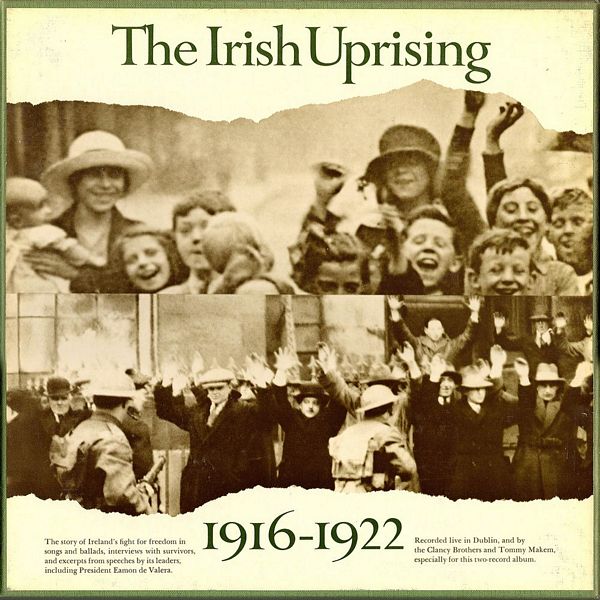 |
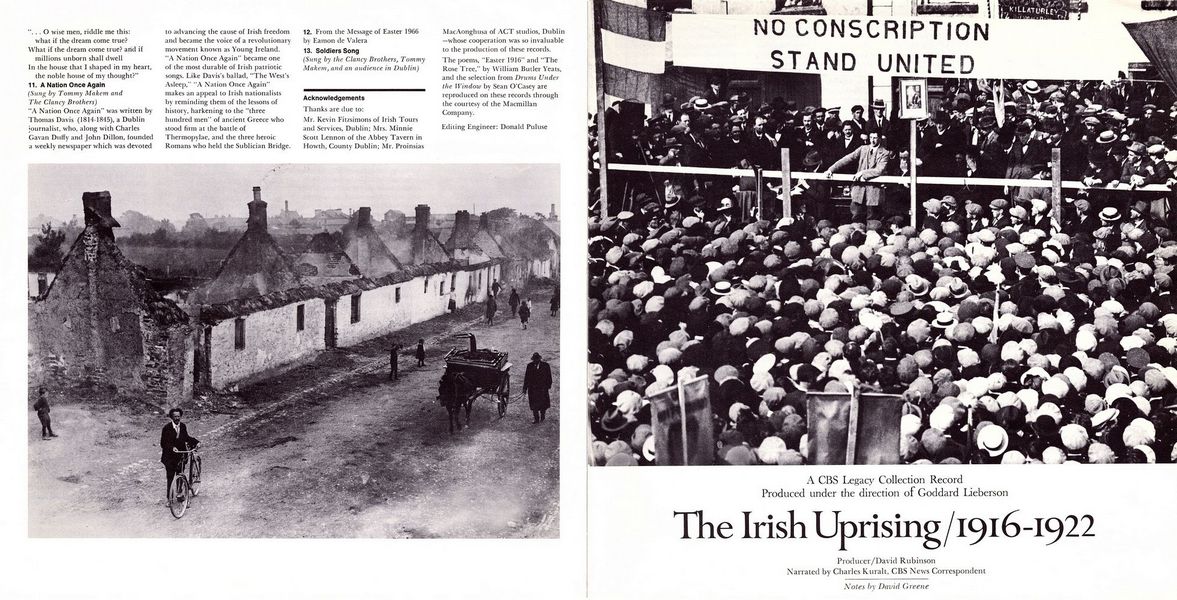
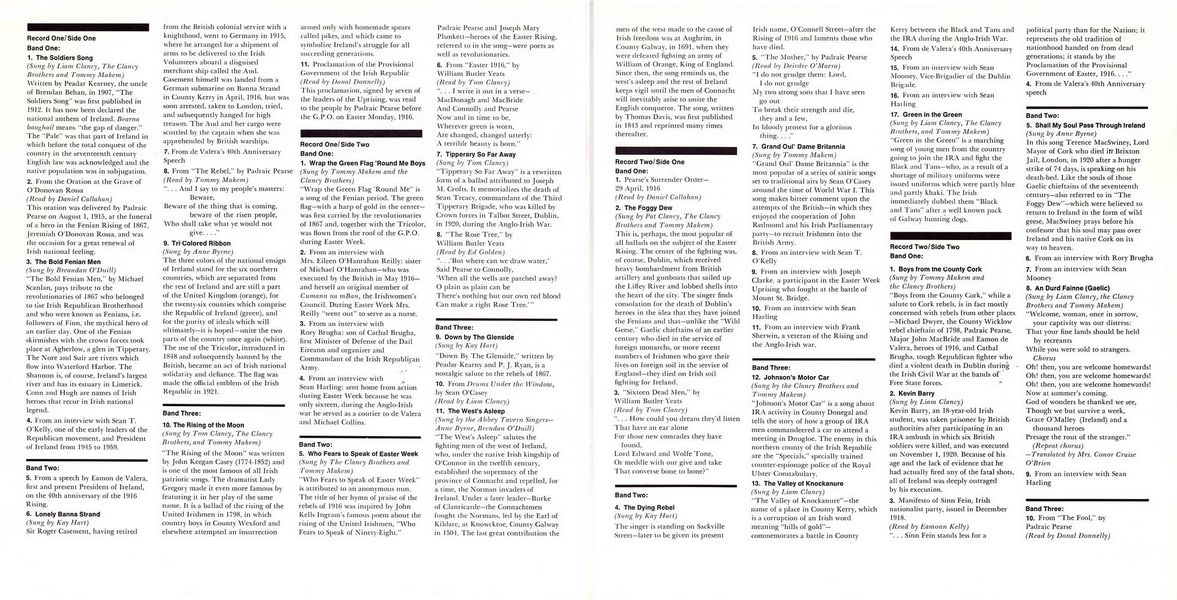 |

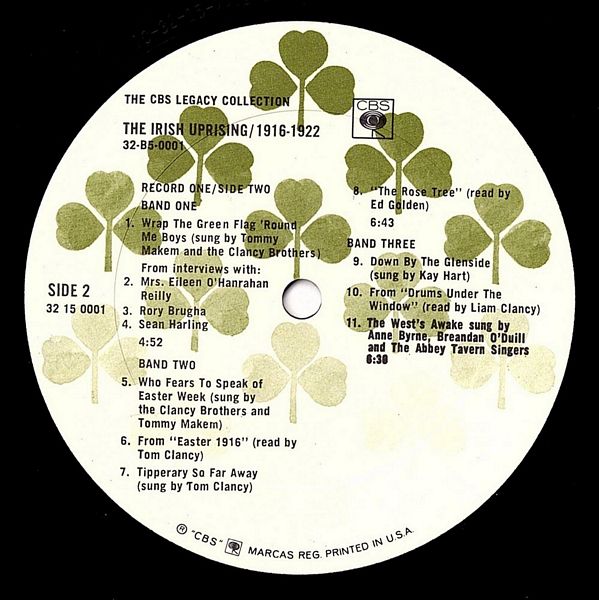

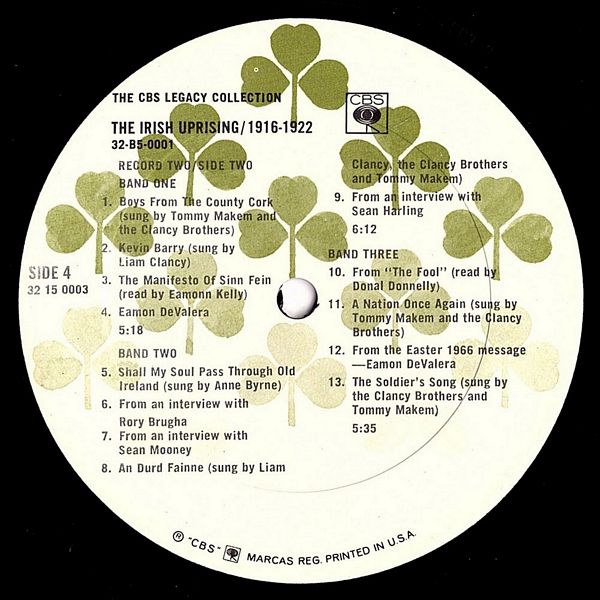 |
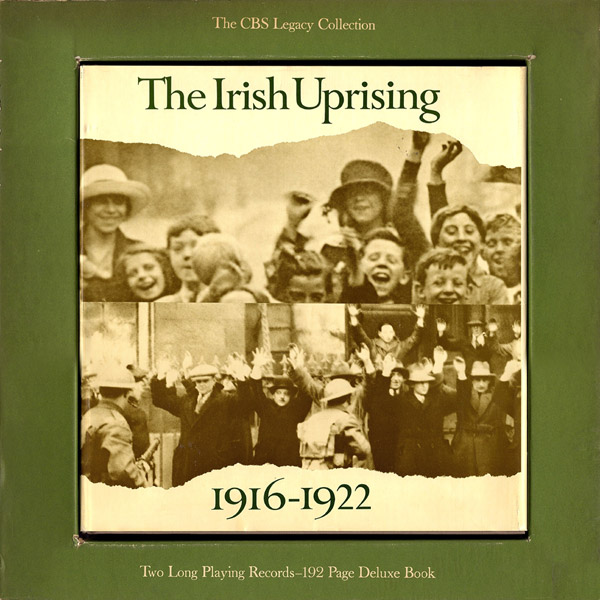
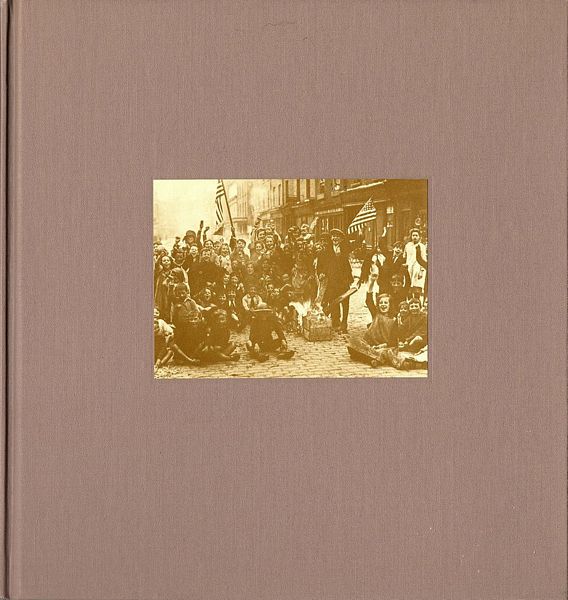 |
 |
Sleeve Notes
The Soldiers Song (Sung by Liam Clancy, The Clancy Brothers and Tommy Makem)
Written by Peadar Kearney, the uncle of Brendan Behan, in 1907, "The Soldiers Song" was first published in 1912. It has now been declared the national anthem of Ireland. Bearna baoghail means "the gap of danger." The "Pale" was that part of Ireland in which before the total conquest of the country in the seventeenth century English law was acknowledged and the native population was in subjugation.
From the Oration at the Grave of O'Donovan Rossa (Read by Daniel Callahan)
This oration was delivered by Padraic Pearse on August 1, 1915, at the funeral of a hero in the Fenian Rising of 1867, Jeremiah O'Donovan Rossa, and was the occasion for a great renewal of Irish national feeling.
The Bold Fenian Men (Sung by Breandan O'Duill)
"The Bold Fenian Men," by Michael Scanlan, pays tribute to the revolutionaries of 1867 who belonged to the Irish Republican Brotherhood and who were known as Fenians, i.e. followers of Finn, the mythical hero of an earlier day. One of the Fenian skirmishes with the crown forces took place at Agherlow, a glen in Tipperary. The Nore and Suir are rivers which flow into Waterford Harbor. The Shannon is, of course, Ireland's largest river and has its estuary in Limerick. Conn and Hugh are names of Irish heroes that recur in Irish national legend.
From an interview with Seán T. O'Kelly, one of the early leaders of the Republican movement, and President of Ireland from 1945 to 1959.
From a speech by Eamon de Valera, first and present President of Ireland, on the 40th anniversary of the 1916 Rising.
Lonely Banna Strand (Sung by Kay Hart)
Sir Roger Casement, having retired from the British colonial service with a knighthood, went to Germany in 1915, where he arranged for a shipment of arms to be delivered to the Irish Volunteers aboard a disguised merchant ship called the Aud.
Casement himself was landed from a German submarine on Banna Strand in County Kerry in April, 1916, but was soon arrested, taken to London, tried, and subsequently hanged for high treason. The Aud and her cargo were scuttled by the captain when she was apprehended by British warships.
From "The Rebel," by Padraic Pearse (Read by Tommy Makem)
" … And I say to my people's masters: Beware,
Beware of the thing that is coming, beware of the risen people,
Who shall take what ye would not give … "
Tri-Colored Ribbon (Sung by Anne Byrne)
The three colors of the national ensign of Ireland stand for the six northern countries, which are separated from the rest of Ireland and are still a part of the United Kingdom (orange), for the twenty-six counties which comprise the Republic of Ireland (green), and for the purity of ideals which will ultimately — it is hoped — unite the two parts of the country once again (white). The use of the Tricolor, introduced in 1848 and subsequently banned by the British, became an act of Irish national solidarity and defiance. The flag was made the official emblem of the Irish Republic in 1921.
The Rising of the Moon (Sung by Tom Clancy, The Clancy Brothers, and Tommy Makem)
"The Rising of the Moon" was written by John Keegan Casey (1774-1852) and is one of the most famous of all Irish patriotic songs. The dramatist Lady Gregory made it even more famous by featuring it in her play of the same name. It is a ballad of the rising of the United Irishmen in 1798, in which country boys in County Wexford and elsewhere attempted an insurrection armed only with homemade spears called pikes, and which came to symbolize Ireland's struggle for all succeeding generations.
Proclamation of the Provisional Government of the Irish Republic (Read by Donal Donnelly)
This proclamation, signed by seven of the leaders of the Uprising, was read to the people by Padraic Pearse before the C.P.O. on Easter Monday, 1916.
Wrap the Green Flag 'Round Me Boys (Sung by Tommy Makem and the Clancy Brothers)
"Wrap the Green Flag 'Round Me" is a song of the Fenian period. The green flag — with a harp of gold in the center — was first carried by the revolutionaries of 1867 and, together with the Tricolor, was flown from the roof of the G.P.O. during Easter Week.
From an interview with Mrs. Eileen O'Hanrahan Reilly: sister of Michael O'Hanrahan — who was executed by the British in May 1916 — and herself an original member of Cumann na mBan, the Irishwomen's Council. During Easter Week Mrs. Reilly "went out" to serve as a nurse.
From an interview with Rory Brugha: son of Cathal Brugha, first Minister of Defense of the Dail Eireann and organizer and Commandant of the Irish Republican Army.
From an interview with Seán Harling: sent home from action during Easter Week because he was only sixteen, during the Anglo-Irish war he served as a courier to de Valera and Michael Collins.
Who Fears to Speak of Easter Week (Sung by The Clancy Brothers and Tommy Makem)
"Who Fears to Speak of Easter Week" is attributed to an anonymous nun. The title of her hymn of praise of the rebels of 1916 was inspired by John Kells Ingram's famous poem about the rising of the United Irishmen, "Who Fears to Speak of Ninety-Eight."
Padraic Pearse and Joseph Mary Plunkett — heroes of the Easter Rising, referred to in the song — were poets as well as revolutionaries.
From "Easter 1916," by William Butler Yeats (Read by Tom Clancy)
" … I write it out in a verse —
MacDonagh and MacBride
And Connolly and Pearse
Now and in time to be,
Wherever green is worn,
Are changed, changed utterly:
A terrible beauty is born."
Tipperary So Far Away (Sung by Tom Clancy)
"Tipperary So Far Away" is a rewritten form of a ballad attributed to Joseph M. Crofts. It memorializes the death of Seán Treacy, commandant of the Third Tipperary Brigade, who was killed by Crown forces in Talbot Street, Dublin, in 1920, during the Anglo-Irish War.
"The Rose Tree," by William Butler Yeats (Read by Ed Golden)
" … 'But where can we draw water,'
Said Pearse to Connolly,
'When all the wells are parched away?
O plain as plain can be
There's nothing but our own red blood
Can make a right Rose Tree.' "
Down by The Glenside (Sung by Kay Hart)
"Down By The Glenside," written by Peadar Kearny and P. J. Ryan, is a nostalgic salute to the rebels of 1867.
From Drums Under the Window, by Seán O'Casey (Read by Liam Clancy)
The West's Asleep (Sung by the Abbey Tavern Singers — Anne Byrne, Brendan O'Duill)
"The West's Asleep" salutes the fighting men of the west of Ireland, who, under the native Irish kingship of O'Connor in the twelfth century, established the supremacy of the province of Connacht and repelled, for a time, the Norman invaders of Ireland. Under a later leader — Burke of Clanricarde — the Connachtmen fought the Normans, led by the Earl of Kildare, at Knowcktoe, County Galway in 1504. The last great contribution the men of the west made to the cause of Irish freedom was at Aughrim, in County Galway, in 1691, when they were defeated fighting an army of William of Orange, King of England. Since then, the song reminds us, the west's asleep and the rest of Ireland keeps vigil until the men of Connacht will inevitably arise to smite the English conqueror. The song, written by Thomas Davis, was first published in 1843 and reprinted many times thereafter.
Pearse's Surrender Order — 29 April, 1916 (Read by Daniel Callahan)
The Foggy Dew (Sung by Pat Clancy, The Clancy Brothers and Tommy Makem)
This is, perhaps, the most popular of all ballads on the subject of the Easter Rising. The center of the fighting was, of course, Dublin, which received heavy bombardment from British artillery and gunboats that sailed up the Liffey River and lobbed shells into the heart of the city. The singer finds consolation for the death of Dublin's heroes in the idea that they have joined the Fenians and that — unlike the "Wild Geese," Gaelic chieftains of an earlier century who died in the service of foreign monarchs, or more recent numbers of Irishmen who gave their lives on foreign soil in the service of England — they died on Irish soil fighting for Ireland.
"Sixteen Dead Men," by William Butler Yeats (Read by Tom Clancy)
" … How could you dream they'd listen
That have an ear alone
For those new comrades they have found,
Lord Edward and Wolfe Tone,
Or meddle with our give and take
That converse bone to bone?"
The Dying Rebel (Sung by Kay Hart)
The singer is standing on Sackville Street — later to be given its present Irish name, O'Connell Street — after the Rising of 1916 and laments those who have died.
"The Mother," by Padraic Pearse (Read by Deirdre O'Maera)
"I do not grudge them: Lord,
I do not grudge
My two strong sons that I have seen go out
To break their strength and die, they and a few,
In bloody protest for a glorious thing … "
Grand Oul' Dame Britannia (Sung by Tommy Makem)
"Grand Old' Dame Britannia" is the most popular of a series of satiric songs set to traditional airs by Seán O'Casey around the time of World War I. This song makes bitter comment upon the attempts of the British — in which they enjoyed the cooperation of John Redmond and his Irish Parliamentary party — to recruit Irishmen into the British Army.
From an interview with Joseph Clarke, a participant in the Easter Week Uprising who fought at the battle of Mount St. Bridge.
From an interview with Frank Sherwin, a veteran of the Rising and the Anglo-Irish war.
Johnson's Motor Car (Sung by the Clancy Brothers and Tommy Makem)
" Johnson's Motor Car" is a song about IRA activity in County Donegal and tells the story of how a group of IRA men commandeered a car to attend a meeting in Dnugloe. The enemy in this northern county of the Irish Republic are the "Specials," specially trained counter-espionage police of the Royal Ulster Constabulary.
The Valley of Knockanure (Sung by Liam Clancy)
"The Valley of Knockanure" — the name of a place in County Kerry, which is a corruption of an Irish word meaning "hills of gold" — commemorates a battle in County Kerry between the Black and Tans and the IRA timing the Anglo-Irish War.
From an interview with Seán Mooney, Vice-Brigadier of the Dublin Brigade.
Green in the Green (Sung by Liam Clancy, The Clancy Brothers, and Tommy Makem)
"Green in the Green" is a marching song of young men from the country going to join the IRA and fight the Black and Tans — who, as a result of a shortage of military uniforms were issued uniforms which were partly blue and partly khaki. The Irish immediately dubbed them "Black and Tans" after a well known pack of Galway hunting dogs.
Boys from the County Cork (Sung by Tommy Makem and the Clancy Brothers)
"Boys from the County Cork," while a salute to Cork rebels, is in fact mostly concerned with rebels from other places — Michael Dwyer, the County Wicklow rebel chieftain of 1798, Padraic Pearse, Major John MacBride and Eamon de Valera, heroes of 1916, and Cathal Brugha, tough Republican fighter who died a violent death in Dublin during the Irish Civil War at the hands of Free State forces.
Kevin Barry (Sung by Liam Clancy)
Kevin Barry, an 18-year-old Irish student, was taken prisoner by British authorities after participating in an IRA ambush in which six British soldiers were killed, and was executed on November 1, 1920. Because of his age and the lack of evidence that he had actually fired any of the fatal shots, all of Ireland was deeply outraged by his execution.
Manifesto of Sinn Fein, Irish nationalist parly, issued in December 1918. (Read by Eamonn Kelly)
" … Sinn Fein stands less for a political party than for the Nation; it represents the old tradition of nationhood handed on from dead generations; it stands by the Proclamation of the Provisional Government of Easter, 1916 … "
Shall My Soul Pass Through Ireland (Sung by Anne Byrne)
In this song Terence MacSwiney, Lord Mayor of Cork who died in Brixton Jail, London, in 1920 after a hunger strike of 74 days, is speaking on his death-bed. Like the souls of those Gaelic chieftains of the seventeenth century — also referred to in "The Foggy Dew" — which were believed to return to Ireland in the form of wild geese, MacSwiney prays before his confessor that his soul may pass over Ireland and his native Cork on its way to heaven.
An Durd Fainne (Gaelic) (Sung by Liam Clancy, the Clancy Brothers and Tommy Makem)
"Welcome, woman, once in sorrow, your captivity was our distress:
That your fine lands should be held by recreants
While you were sold to strangers.
Chorus
Oh! then, you are welcome homewards!
Oh! then, you are welcome homewards!
Oh! then, you are welcome homewards!
Now at summer's coming.
God of wonders be thanked we see,
Though we but survive a week,
Grace O'Malley (Ireland) and a thousand heroes
Presage the rout of the stranger."
(Repeat chorus)
— Translated by Mrs. Conor Cruise O'Brien
From "The Fool," by Padraic Pearse (Read by Donal Donnelly)
… O wise men, riddle me this:
what if the dream come true?
What if the dream come true? and if millions unborn shall dwell
In the house that I shaped in my heart, the noble house of my thought?"
A Nation Once Again (Sung by Tommy Makem and The Clancy Brothers)
"A Nation Once Again" was written by Thomas Davis (1814-1845), a Dublin journalist, who, along with Charles Gavan Duffy and John Dillon, founded a weekly newspaper which was devoted to advancing the cause of Irish freedom and became the voice of a revolutionary movement known as Young Ireland.
"A Nation Once Again" became one of the most durable of Irish patriotic songs. Like Davis's ballad, "The West's Asleep," "A Nation Once Again" makes an appeal to Irish nationalists by reminding them of the lessons of history, harkening to the "three hundred men" of ancient Greece who stood firm at the battle of Thermopylae, and the three heroic Romans who held the Sublician Bridge.
Soldiers Song (Sung by the Clancy Brothers, Tommy Makem, and an audience in Dublin)